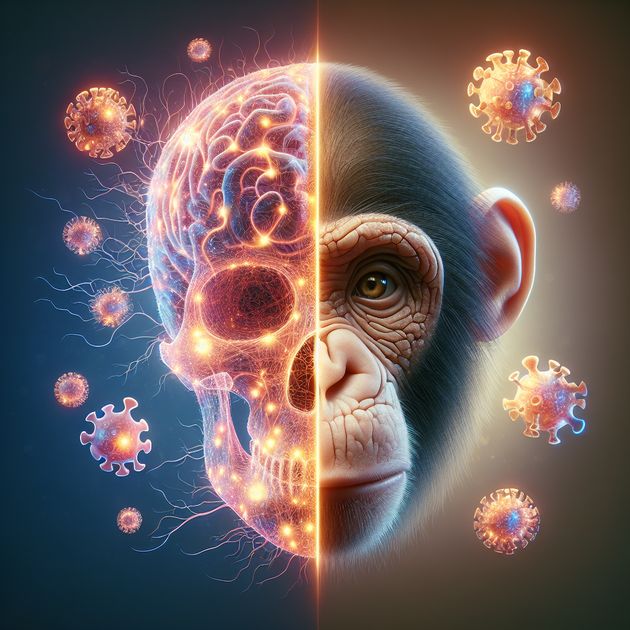What if one of humanity’s greatest strengths—our remarkable intelligence—also came with an unexpected cost? That’s exactly what researchers are exploring after discovering that autism’s prevalence may be linked to how our brains evolved. It turns out, human intelligence might have a price.
How Brain Evolution Might Explain Autism
Scientists have long wondered why conditions like autism are relatively common in humans but rare or absent in other animals. Recent studies comparing the brains of different primates have uncovered some fascinating clues. When researchers looked at brain structure and function across species, they found that some traits associated with autism—like heightened pattern recognition or social uniqueness—are actually tied to features that make the human brain so advanced.
Essentially, as our ancestors’ brains evolved for greater learning, creativity, and problem-solving, it seems there was a trade-off. The very genetic and neural changes that boosted our intelligence may have also increased susceptibility to neurodevelopmental differences like autism.
Comparing Primate Brains: What Sets Us Apart?
To get to the bottom of this link between autism and human intelligence, scientists compared human brains with those of other primates—our closest relatives on the evolutionary tree. Here’s what stood out:
- Humans have much more complex neural networks dedicated to language and abstract thinking.
- Our brains show unique patterns in regions involved in social interaction and sensory processing.
- Some genetic changes tied to increased cognitive ability also correlate with higher rates of neurodiversity.
- Unlike humans, other primates rarely show behaviors or wiring similar to what we see in autistic individuals.
These findings suggest that as humans developed exceptional skills—think communication, reasoning, or imagination—we also set up conditions where brain development could more easily take different paths.
The Trade-Offs Behind Human Intelligence
Every big leap in evolution comes with trade-offs. For humans, evolving such powerful brains brought incredible benefits: art, science, technology—you name it! But nothing comes for free.
Autism seems to be one side effect of these evolutionary upgrades. Researchers now suspect that many genes involved in boosting memory or creativity can also influence how the brain organizes itself during development. Sometimes these differences lead to challenges; other times they come with strengths such as intense focus or deep expertise.
Here’s a quick breakdown of key points about this potential trade-off:
- Genetic overlap: Genes linked to cognitive growth can also affect neurodevelopment.
- Spectrum: Autism is diverse; some traits reflect unique ways of processing information.
- Evolutionary advantage: Neurodiversity might help groups adapt by offering new perspectives.
- Modern context: Society is still learning how best to support all kinds of minds.
A Real-World Perspective on Neurodiversity
There’s one story that sticks out when thinking about this connection between autism and human intelligence. In a small tech startup I once visited (let’s call it Bright Minds), nearly half the team identified as autistic or otherwise neurodiverse. Their office hummed quietly while people worked intensely—some on code, others designing graphics or solving tricky logistical problems.
The founder told me their company thrived exactly because everyone thought differently. One employee could spot patterns in data sets no one else could see; another had an uncanny ability to focus for hours on details most people overlooked. “This isn’t despite their differences,” she said. “It’s because of them.” That team proved just how valuable diverse ways of thinking can be—and how closely linked they are with creative breakthroughs.
What Does This Mean for the Future?
If autism really is connected to the evolution of human intelligence, maybe we need to rethink what it means for a brain to be “typical” or “different.” Instead of seeing neurodiversity as something separate from success stories like language or invention, perhaps it’s part of what got us here in the first place.
As science continues unraveling how genetics and brain development shape who we are, one thing is clear: Our greatest strengths often come hand-in-hand with new challenges—and sometimes those challenges turn out to be strengths themselves.
What do you think—could embracing our full range of minds help humanity reach even greater heights?

Leave a Reply